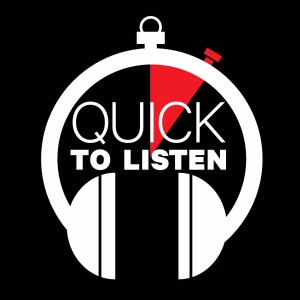
Note: Quick to Listen now has transcripts! Scroll to the bottom of the episode description to read through our conversation with David Bailey. Last week, the Houston Chronicle and San Antonio Express-News published a three-part investigation into the scope of sex abuse in the Southern Baptist Convention. Among one of the seeming fruits of their report was an announcement from the head of Southern Baptist Theological Seminary. Al Mohler wanted to apologize for the role that he played in protecting his friend CJ Mahaney after he was accused of covering up a sex abuse scandal at his church. In an 850-word statement, Mohler acknowledged his role in supporting Mahaney, even as questions arose about his involvement. He then expressed regret for his former actions and spoke specifically about where he believed he had fallen short. “I can only speak for myself, but I wish to do so clearly, acknowledging these errors, grieving at the harm that was done, and committing to do everything I can to lead well and to serve Christ faithfully.” Like many public apologies today, Mohler’s drew a mixed reaction. Some were frustrated about the length of time it took for him to acknowledge his mistakes. Others were encouraged by the change of heart from a man who it had seemed might never change his mind. “With our leaders, any kind of leadership, people want to know, if something’s wrong, do you see it and are you going to do something about it? Are you going to do the right thing?” said David Bailey, the executive director of Arrabaon, a ministry that helps Christian leaders engage in in reconciliation. “Leadership, a lot of times, is moving on the currency of trust. I think a demand for an apology is ‘Hey, can I trust you? Are you going to do the right thing?’” Bailey joined digital media producer Morgan Lee and editor in chief Mark Galli to discuss why it’s hard to offer a good public apology, why it’s significant that we “demand an apology,” and how long is long enough before the start of a “comeback” story.
view more
More Episodes
The Hard Truth About Pastors' Pay
 2018-12-05
2018-12-05
 2018-12-05
2018-12-05
This 'Religious War' Isn't Religious
 2018-11-14
2018-11-14
 2018-11-14
2018-11-14
012345678910111213141516171819
Create your
podcast in
minutes
- Full-featured podcast site
- Unlimited storage and bandwidth
- Comprehensive podcast stats
- Distribute to Apple Podcasts, Spotify, and more
- Make money with your podcast
It is Free
- Privacy Policy
- Cookie Policy
- Terms of Use
- Consent Preferences
- Copyright © 2015-2024 Podbean.com




